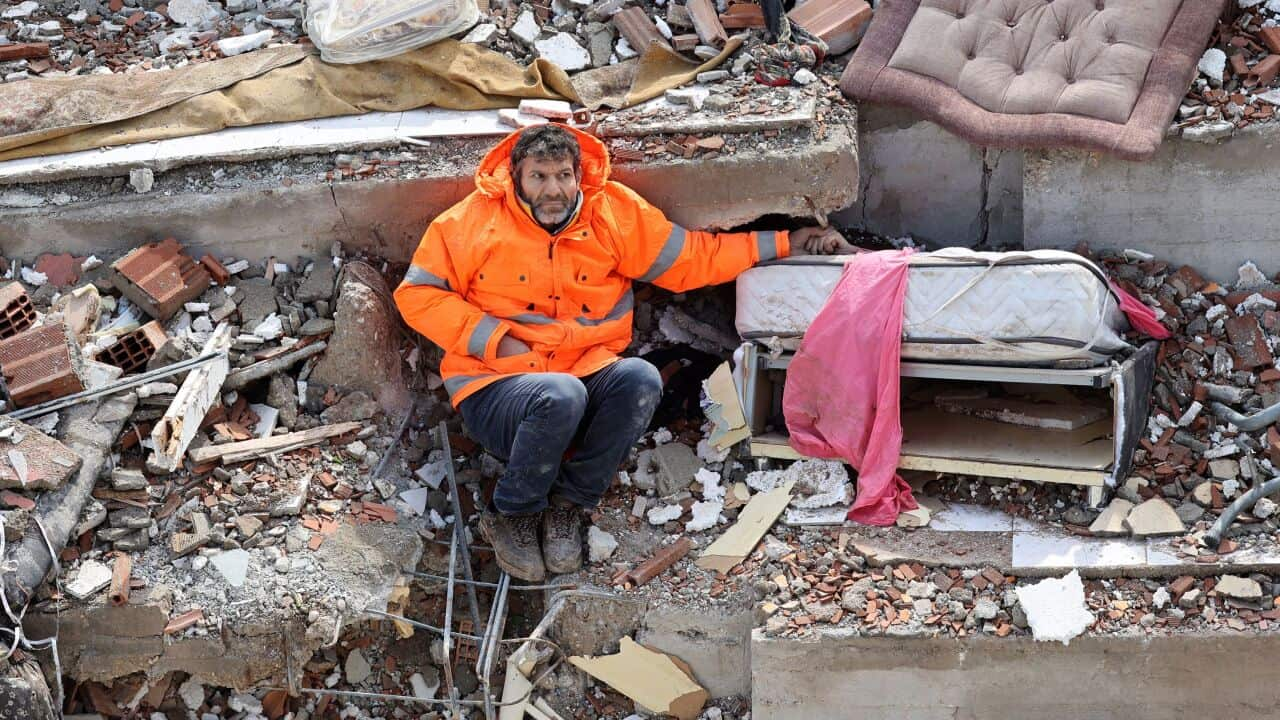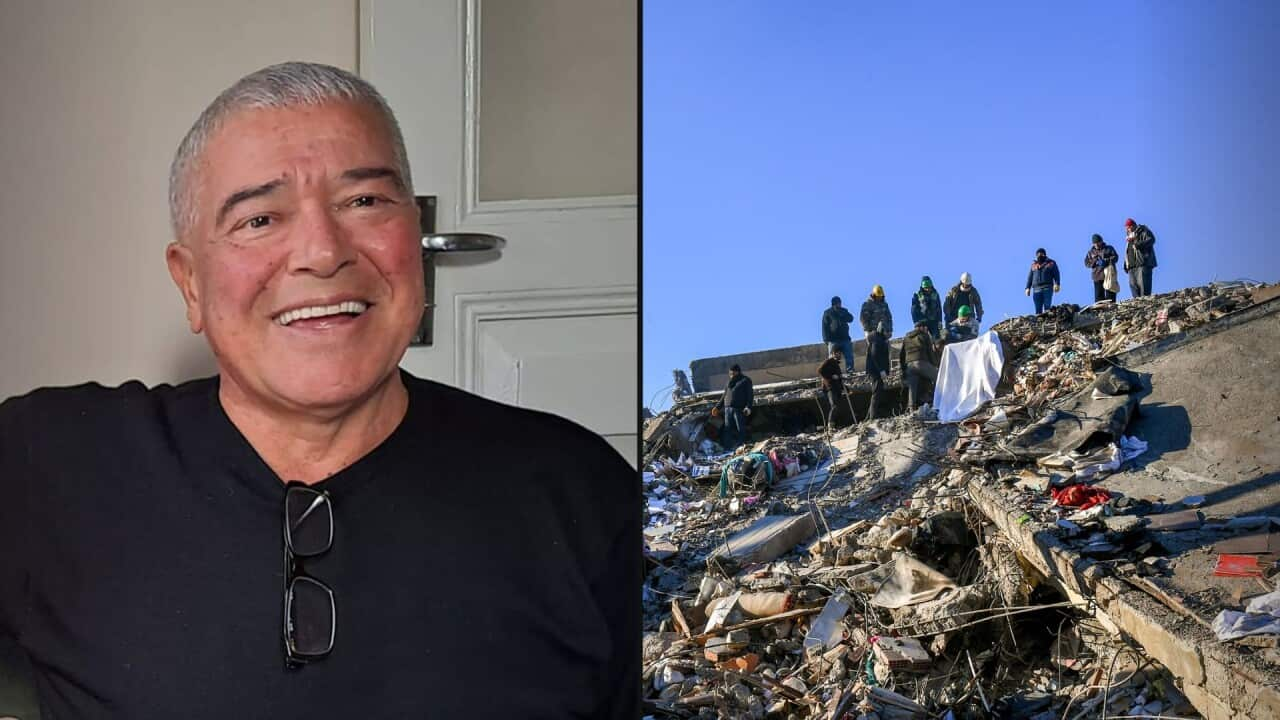KEY POINTS
- Mesut Hancer was photographed as he held the hand of his daughter who was buried beneath debris.
- It was a delicate moment. But instead of shooing a photographer away, the father called him in.
- The photo appeared on the front pages of major newspapers across the world
It was a moment encapsulating the unspeakable pain of the Turkish earthquake: a father holding his 15-year-old's hand, the only thing visible after her body was crushed by concrete.
Mesut Hancer sat alone in the freezing cold on a pile of broken bricks that were once his home, oblivious to the world and overwhelmed by grief.
His daughter, Irmak, was dead. But he refused to let her go, caressing the fingers peeking out from a mattress the girl was asleep on when .
There were no rescue teams. Survivors were frantically clawing their way through the rubble to find loved ones, bits of their homes thrown out onto the debris-strewn street.

Mesut Hancer sat alone in the freezing cold on a pile of broken bricks that were once his home, oblivious to the world and overwhelmed by grief. Source: Getty, AFP / Adem Altan
It was too late for Irmak, one of nearly 20,000 people confirmed to have died in .
But Adem Altan, a veteran photographer with news agency AFP who rushed to the scene from Ankara, could not take his eyes off the still, silently mourning father.
He trained his camera on Mr Hancer from 60 metres away. It was a delicate moment. But instead of shooing Mr Altan away, the father called him in.
"Take pictures of my child," Mr Hancer called in a low, trembling voice.
'I was speechless'
The father wanted the world to see his — and his nation's — grief. And it did.
The AFP photograph appeared on the front pages of major newspapers across the world, including the Financial Times and the Wall Street Journal.
"As I took photos, I was so sad. I kept repeating to myself, 'what immense pain'. I couldn't stop myself from crying," Mr Altan recalled.
"I was speechless."
Mr Altan asked Hancer his name and then his daughter's name.

The aftermath of the earthquake in Idlib, Syria. Source: Getty / dia images/Zana Halil
Mr Altan could not ask too many questions because everyone needed to observe silence to hear whether there were survivors underneath the rubble.
A photographer for 40 years, including 15 with AFP, Mr Altan knew that the photograph represented Turkey's pain.
But its global impact surprised him. It has been shared hundreds of thousands of times online.
Mr Altan has received thousands of messages from people worldwide, wanting to offer support.
"Many told me they will never forget this image," he said.
Hope for more survivors fades
Cold, hunger and despair gripped hundreds of thousands of people left homeless after the earthquakes that struck Turkey and Syria three days ago as the death toll passed 20,000 on Thursday.
The rescue of a 2-year-old boy after 79 hours trapped in the rubble of a collapsed building in Hatay, Turkey, and several other people raised spirits among weary search crews. But hopes were fading that many more would be found alive in the ruins of towns and cities.
The death toll across both countries has now surpassed the more than 17,000 killed in 1999 when a similarly powerful quake hit northwest Turkey.

Hope of finding earthquake survivors is fading. Source: Getty, Anadolu / Serkan Avci
With anger simmering over delays in the delivery of aid and getting the rescue effort underway, the disaster is likely to play into the vote if it goes ahead.
The first United Nations convoy carrying aid to stricken Syrians crossed over the border from Turkey.
In Syria's Idlib province, Munira Mohammad, a mother of four who fled Aleppo after the quake, said: "It is all children here, and we need heating and supplies, last night we couldn't sleep because it was so cold. It is very bad."
Hundreds of thousands of people in both countries have been left homeless in the middle of winter. Many have camped out in makeshift shelters in supermarket car parks, mosques, roadsides or amid the ruins, often desperate for food, water and heat.
Some 40 per cent of buildings in the Turkish city of Kahramanmaras, epicentre of the tremor, are damaged, according to a preliminary report by Turkey's Bogazici University.











